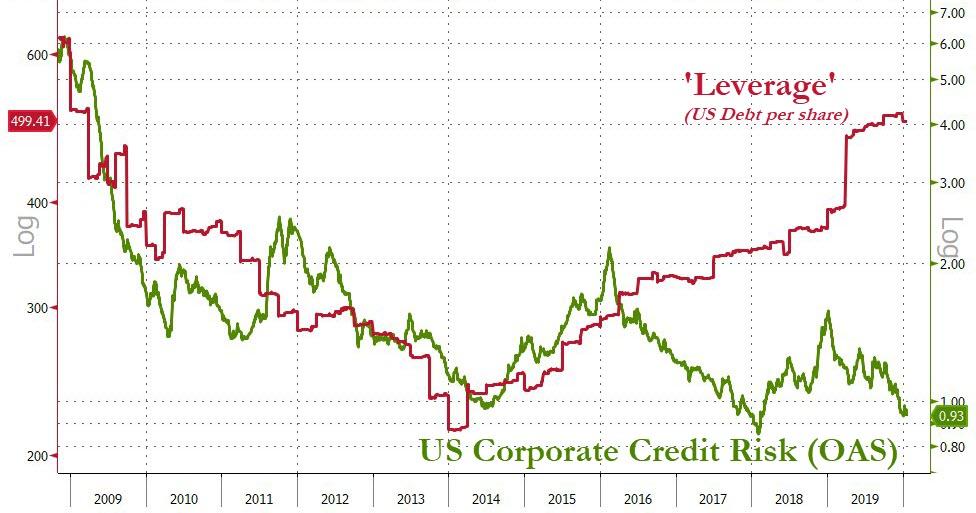Global Recession “Appears Inevitable” – Guggenheim’s Minerd Fears Cascading ‘Butterfly Effect’
In January, Guggenheim CIO Scott Minerd warned that ultimately, markets will need to reprice for this rising risk with increased bond spreads relative to Treasury securities. However, that day of reckoning when spreads rise is being held off by the flood of central bank liquidity and international investors fleeing negative yields overseas.

And let’s not forget downgrade risk of BBBs: today 50 percent of the investment-grade market is rated BBB, and in 2007 it was 35 percent. More specifically, about 8 percent of the investment-grade market was BBB- in 2007 and today it is 15 percent. It has more than quintupled in size outstanding, from $800 billion to $3.3 trillion. We expect 15–20 percent of BBBs to get downgraded to high yield in the next downgrade wave: This would equate to $500–660 billion and be the largest fallen angel volume on record—and would also swamp the high yield market.
Ultimately, we will reach a tipping point when investors will awaken to the rising tide of defaults and downgrades. The timing is hard to predict but this reminds me a lot of the lead-up to the 2001 and 2002 recession.
Coronavirus Unlikely to Cause U.S. Recession, BridgePark’s Selig Says
The prolonged period of tight credit spreads experienced in the late 1990s lulled investors into unwittingly increasing risk at a time they should have been upgrading their portfolios.
This brings to mind the famous observation by economist Hyman Minsky, who stated that stability is inherently destabilizing. That is to say that long periods of relative stability in risk assets causes investors to keep upping the risk during a long period of calm.
Ultimately, this leads to what he called a Ponzi Market where the only reason investors keep adding to risk is the fear that prices will be higher tomorrow (or in the case of bonds, yields will be lower tomorrow).
…click on the above link to read the rest of the article…